Remove bottlenecks, promote motivation
The summary of the practical implementation of Resolution No. 19-NQ/TW of the 6th Central Conference of the 11th Term and the summary of the implementation of the 2013 Land Law shows that land management has achieved important results, creating a synchronous, tight, and feasible legal corridor for resource exploitation, rational, economical, and effective land use, development of technical infrastructure works, social infrastructure, and urban housing; creating conditions for land to participate in the real estate market; significantly increasing budget revenue, positively contributing to the socio -economic development, national defense, and security of the country.
Although important results have been achieved, the practical summary also shows that land management and use still have shortcomings and limitations in some aspects such as: land use planning has not ensured uniformity, comprehensiveness, systematization, low quality, lack of long-term vision, has not met the requirements of sustainable development and has not been strictly implemented; access to land by organizations and individuals, especially ethnic minorities through land allocation and land lease is still inadequate; land recovery, compensation, support and resettlement in some places have not ensured harmony of people's interests; the land use rights market has not developed stably; administrative reform in land management has not met practical requirements; land finance and land prices have not yet reflected market reality; State management capacity on land has not yet met requirements; database and land information system have not been completed; The trend of land degradation, pollution, and saltwater intrusion is occurring in many places, with complex developments, leading to land loss, reduced fertility, land degradation, greatly affecting agricultural and forestry production and people's lives; land resources have not been fully and sustainably exploited, promoted; complaints, denunciations, and violations of land laws are still numerous but handling is limited. The cause of the above situation is that land has a historical and complex character; the organization of law enforcement in some places is not strict; policies and laws are still inadequate, some contents of other related laws are not unified and synchronized with the Land Law; some new contents arise in practice but the law has no regulations to regulate them.
In the face of the above practical situation, our Party has researched and proposed many important guidelines related to the improvement of land institutions and policies through many Resolutions and Conclusions such as the Resolution of the 13th National Congress of Delegates, Resolution No. 11-NQ/TW dated June 3, 2017 of the Central Executive Committee on perfecting the socialist-oriented market economic institution, Resolution No. 39-NQ/TW dated January 15, 2019 of the Politburo on improving the efficiency of management, exploitation, use and promotion of economic resources, Conclusion 81-KL/TW dated July 29, 2020 of the Politburo on ensuring national food security by 2030. In particular, Resolution No. 18-NQ/TW dated June 16, 2022 of the 5th Conference of the 13th Central Executive Committee with 5 viewpoints, 3 general goals, 6 objectives Specific targets, 6 groups of solutions and 8 major policy groups in perfecting institutions, policies, laws on land and organizing implementation are important political orientations in amending the 2013 Land Law.
From the above political, legal and practical bases, it can be seen that the amendment of the 2013 Land Law is very necessary and must aim at the following goals: The completed land institutions and policies must be consistent with the socialist-oriented market economic institutions; resolve the overlapping and contradictory situations within land policies and laws and between land policies and laws and other relevant laws; create a legal corridor for the management, exploitation, economical, sustainable and effective use of land resources and assets to meet the requirements of promoting industrialization, modernization, ensuring national defense, security, environmental protection, and adaptation to climate change; create new driving forces for our country to become a developed country with high income.

Resolve problems and issues arising from the practice of land management and use that have been pointed out in the process of summarizing Resolution No. 19-NQ/TW and summarizing the implementation of the Land Law; strengthen land management in terms of area, quality, economic value, etc.; ensure harmony of rights and interests of the State, land users and investors; promote commercialization of land use rights, and develop a transparent and healthy real estate market.
Establish a modern, transparent and effective land management system, promote administrative procedure reform, digital transformation, improve land access index; promote democracy, strengthen supervision, overcome corruption, negativity and land-related complaints.
In addition, the amendment of the Land Law must also meet the following requirements: Fully and promptly institutionalize the Party's viewpoints and policies in the Resolutions and Conclusions that have been proposed; Ensure consistency, stability, and inherit and develop regulations that have been proven correct in practice and operate smoothly; Amend and supplement regulations that are not suitable to practice; Ensure the synchronization and unity of the land law system with other relevant laws; Continue to promote decentralization and delegation of power while establishing tools to control the power of competent agencies and persons; Promote administrative procedure reform; Shift the focus from management by administrative tools to effective use of economic tools to contribute to promoting more reasonable, economical and efficient land use; Modernize and digitalize land management based on a unified land information and data system, serving multiple purposes, connecting from the central to local levels, and managing changes to each plot of land.
To achieve the set goals and requirements, the Land Law project (amended) has been elaborately developed, strictly following the processes and procedures prescribed by the Law on Promulgation of Legal Documents.
The draft Law has been organized to collect public opinions; consulted with many relevant parties from central to local management agencies, experts, scientists , organizations, individuals at home and abroad; discussed and commented by the National Assembly at 02 sessions and is expected to be considered for approval at this session. The responsible agencies of the National Assembly and the Government have worked hard, seriously, thoroughly, and scientifically to synthesize, analyze and research to comprehensively absorb comments, especially discussing and absorbing issues with different opinions to complete the draft Law.
10 innovations of the Draft Law
The Draft Land Law (amended) has the following important innovations:
Firstly, more fully regulate the rights and responsibilities of the State as the representative owner, unifying the management of land. Specifically: supplementing regulations on the role and responsibilities of the Vietnam Fatherland Front and its member organizations; regulating the rights and obligations of citizens regarding land to ensure strict compliance with the provisions of the Constitution on land ownership and human rights; more specifically regulating the responsibilities of the State, policies on ensuring land for community activities, policies on supporting agricultural production land, non-agricultural land and mechanisms for creating land funds to support ethnic minorities;….
Second, continue to improve regulations on land investigation and assessment; supplement regulations on land protection, improvement and restoration; regulate the responsibilities of organizations and individuals in land investigation, assessment, protection, improvement and restoration to create a legal corridor for land quality management. Complete synchronous regulations on the construction of a synchronous land use planning and planning system at 3 levels (national, provincial and district levels) to ensure unity, synchronization, connection with other plans and mutual promotion for development; meet the requirements of implementing the Strategy for rapid and sustainable socio-economic development; ensure national defense and security; protect the environment and adapt to climate change.
Supplementing regulations on not having to make land use planning for centrally run cities or for districts, cities, towns under centrally run cities or cities, towns under provinces that have approved urban planning. Regulations on the content of land use planning at each level must combine indicators of land types associated with space, land use zoning, natural ecosystems, and show information for each plot of land.
Third is to perfect the regulations on land allocation, land lease, and land use conversion to ensure publicity and transparency in implementation, equality in access, and conformity with market mechanisms. Supplement regulations on land allocation and land lease through bidding for projects using land; strictly regulate cases of land use rights auctions, land use project biddings, and land conditions for auctions and bidding; regulate land allocation with land use fees, land lease mainly through land use rights auctions, land use project biddings to increase state budget revenue and mobilize social resources for development. Stipulate narrower cases where the State leases land with one-time payment for the entire lease term; perfect regulations on land allocation and land lease related to religion and belief.
Fourth, more specific regulations on the authority, purpose and scope of land recovery; specific conditions and criteria for land recovery for socio-economic development for national and public interests. More complete regulations on compensation, support and resettlement when the State recovers land. Compensation, support and resettlement must be one step ahead; ensure publicity, transparency, democracy and fairness; ensure the harmony of interests of the State, people whose land is recovered and investors; people whose land is recovered must have housing and ensure equal or better living conditions. More specific regulations on the exploitation of adjacent land funds to create land funds and promote land resources. Supplement regulations on the mechanism of land use rights contribution and land readjustment to carry out urban and rural residential area renovation.
The fifth is to abolish the Government's land price framework regulations; perfect the land price determination mechanism according to market principles, ensuring publicity and transparency through amending regulations on principles of land price determination, supplementing regulations on input information for land valuation and specific content of land valuation methods; regulations on the Land Price List Appraisal Council, specific Land Price Appraisal Council and publicizing land prices.
Sixth is to perfect the financial policy on land to ensure the harmony of interests of the State, land users and investors. Supplement regulations on revenue related to abandoned land or delay in putting land into use, revenue from public services on land; mechanism for paying land use fees and land rent when changing land use purpose or extending land use; amend and supplement policies on exemption and reduction of land use fees and land rent.
The seventh is to continue to improve regulations on rights and obligations of land users to be more consistent with the socialist-oriented market mechanism, promote the commercialization of land use rights , and develop land resources. Remove regulations restricting the subjects who can receive the transfer of rice-growing land to facilitate the accumulation of agricultural land.
The eighth is to perfect the mechanism on management and use of agricultural land in the direction of expanding the limit on receiving agricultural land transfers from individuals; supplementing regulations on the use of concentrated livestock land to plan and strictly manage land use as well as protect the environment; perfecting regulations on the use of 3 types of forestry land to be consistent with the provisions of the Forestry Law. Supplementing regulations on concentration and accumulation of agricultural land, land use regime in concentrated agricultural areas, policies to encourage agricultural land concentration. Regulations on the use of multi-purpose land, agricultural land combined with trade and services; national defense and security land combined with production labor, economic construction, religious land combined with other purposes, land with water surface used for multiple purposes, use of underground space, reclaimed land ... to unleash potential, maximize land resources, in line with development trends.
Ninth, continue to decentralize authority to localities in land management and use through regulations on assigning the Provincial People's Council to approve the policy of changing the purpose of rice-growing land and forested land; assigning the authority to decide on specific land prices in some cases to the Chairman of the District People's Committee. At the same time, supplement more specific regulations on inspection, examination and supervision in land management and use.
Finally, more specific regulations on land information systems and land databases; responsibilities for building, managing and operating land information systems as well as managing, exploiting and connecting national land databases; online public services in the land sector, creating a basis for realizing digital transformation and modernizing the Land Management Sector.
In my opinion, the Draft Law on Land (amended) has been completed in a very receptive, serious and responsible spirit; fully institutionalizing the Party's guidelines and expressing the will and aspirations of the majority of the people. Hopefully, at the 6th Session of the 4th National Assembly, this Law Project will be passed by the National Assembly as a legal basis for practical implementation, contributing to the exploitation of land resources for socio-economic development, ensuring national defense, security and environmental protection of the country in the coming time.
Source




![[Photo] Binh Trieu 1 Bridge has been completed, raised by 1.1m, and will open to traffic at the end of November.](https://vphoto.vietnam.vn/thumb/1200x675/vietnam/resource/IMAGE/2025/10/2/a6549e2a3b5848a1ba76a1ded6141fae)



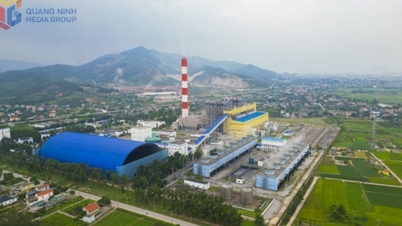

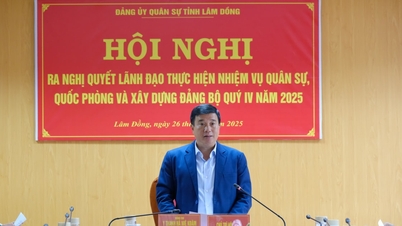





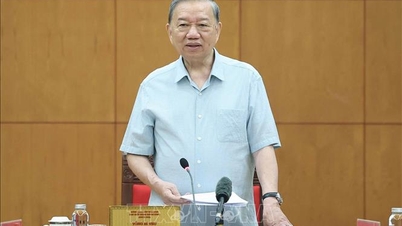




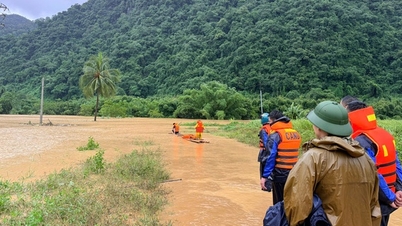




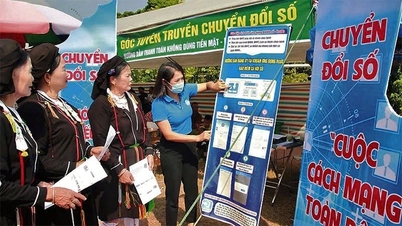

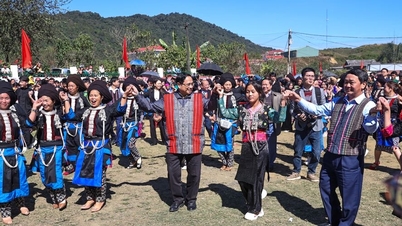












































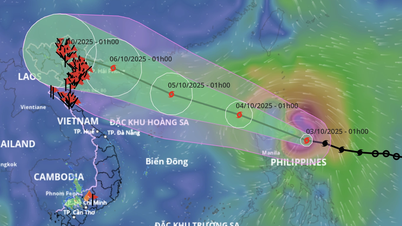

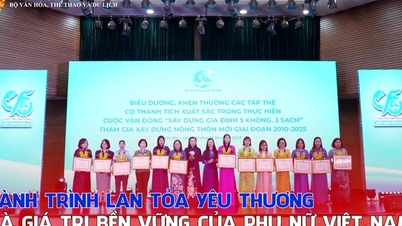








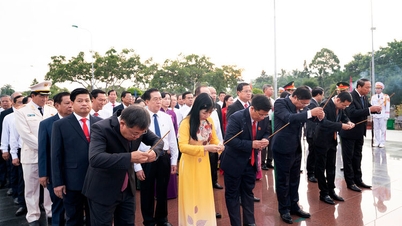
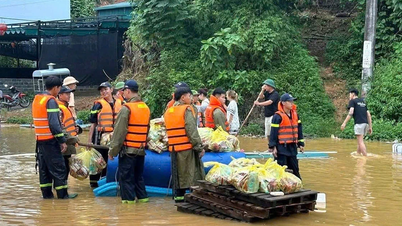




















Comment (0)